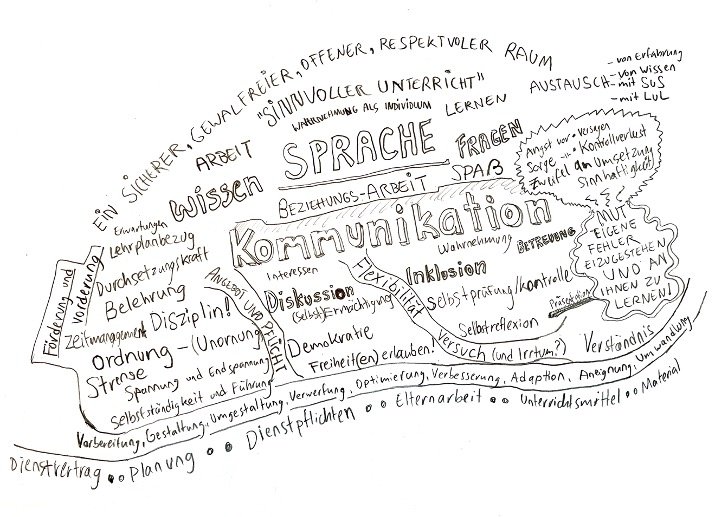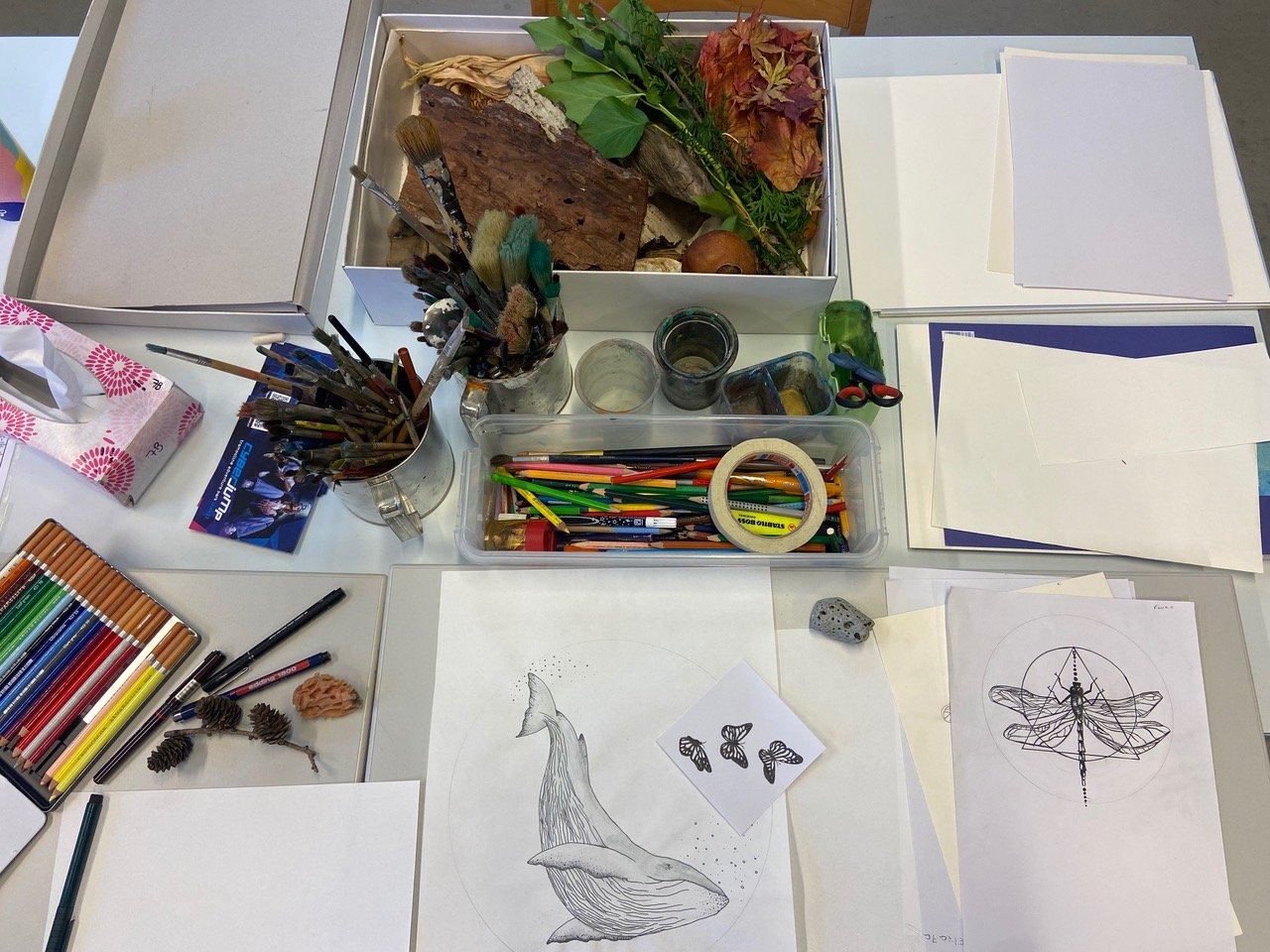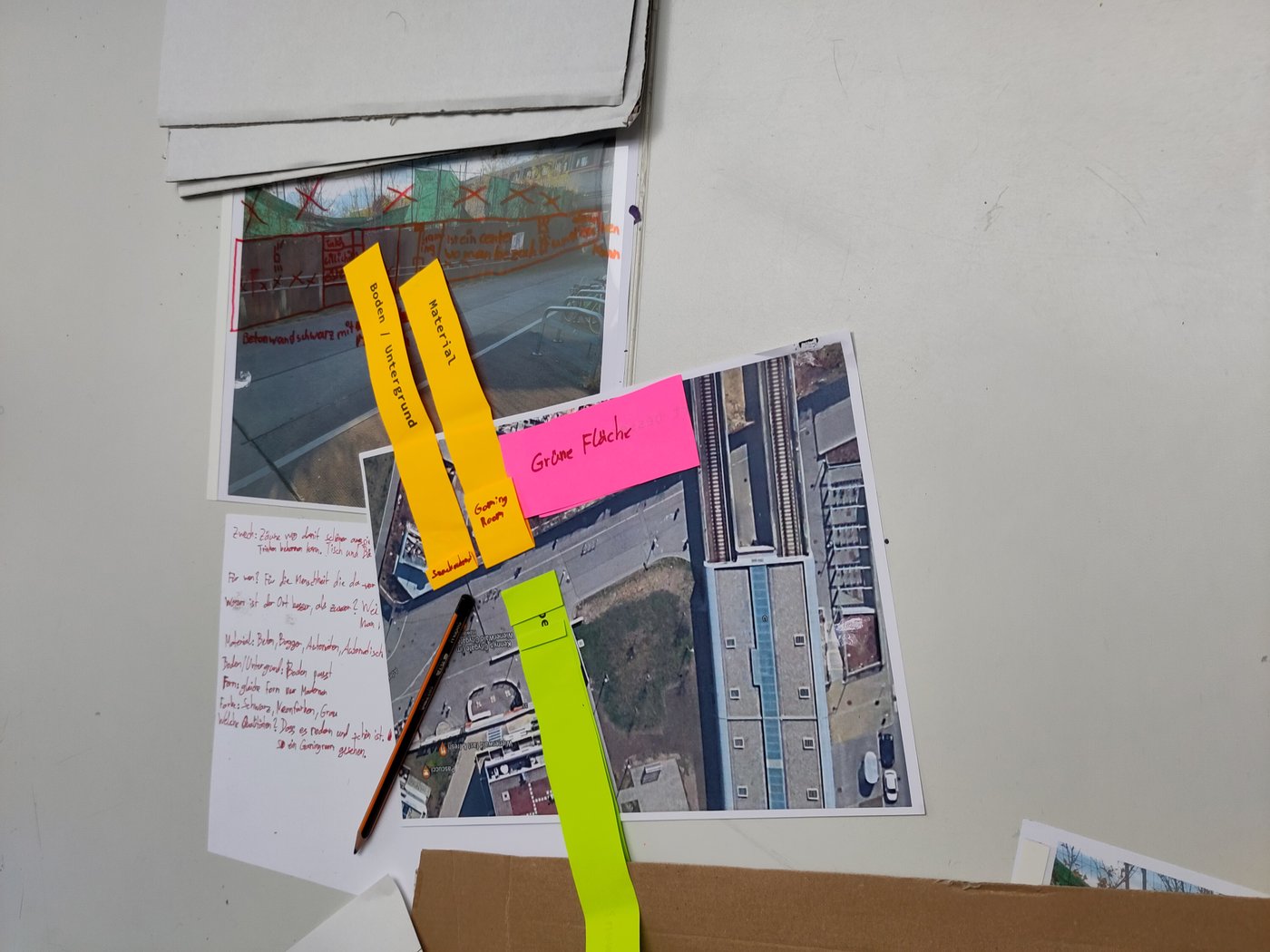Pedagogy, Arts and Culture – the pedagogical and science-of-education component of the art and education programs
In Pedagogy, Arts and Culture, students acquire a profound theoretical and practical knowledge of educational sciences and pedagogy, preparing them for professional practice in pedagogical contexts, especially in school environments. The focus is on initiating, shaping, accompanying, and reflecting educational processes.
The possibilities and limitations of education, teaching and learning are being discussed in regard to critical diversity.
My own pedagogical concept: sketch(es) of a complex structure
Room 4.03
The seminar Focusing your own practice provides MA students with pedagogical support during their school practice phase and primarily offers space for reflection on practical teaching experiences. The focus is on action support and action orientation, whereby the methods of analyzing, evaluating and reflecting on teaching developed in the BA course are deepened and new methods introduced as well as tested. The results of individual students' work are presented here in order to examine their "own pedagogical concept".
"Pictorial perception, imagining and remembering what we see follow a scheme or concept that also has conceptual components (neurolinguistics). While the mental concept of a thing includes an abundance of (haptic, emotional, evaluative, multisensory, linguistic, episodic, narrative, etc.) components, the schema’s focus is on the visually perceivable form, the essentially condensed (schematized) visual image." [original quote in German, translated] (Hubert Sowa 2011)
This quote was the starting point for visualizing and developing one’s own professional self-image. Students "visualized" their own (current) pedagogical concept as a mind map, a respective audio commentary explains the visual structure in its processual and dynamic relationships. Supervised by Grit Oelschlegel and Anna Pritz.
Getting around the bend [Die Kurve kriegen]
Raum 4.01, Gang
Somewhere between the curves of tattooed bananas and graphic curved lines from the shoulder joint, the participants of the school practice-oriented course Getting around the bend set themselves the task of identifying the imbalances in our world in order to develop alternative forms of coexistence in the Anthropocene. They do so in an artistically mediated way in a secondary school. The result is a variety of teaching concepts that were implemented with school classes from the BG/BRG/WikuRG Franklinstraße 26. The teaching experiences are the starting points for reflective questions revolving as to which curves need to be taken in everyday school life. Accompanied and supervised by Eva Kirchmaier and Hans Krameritsch.
Participanting students: Sarah Fichtinger, Andrea Kozuchova, Elina Lamster, Lea Sumey, Lotta Suttner, Janina Wisiak, Alisa Wolf
A survey of invisible spaces: A journey to Kagran
Room 4.01
Students present descriptions of places on the subject school environment, which were developed in project work with eightgraders [fouth class] at the Evangelisches Realgymnasium Donaustadt. Supervised by Antje Lehn and Anna Pritz.
In this course, students explored the school environment together with pupils from the eighth grade of the Evangelisches Realgymnasium (ERG) Donaustadt [K12 school] in Vienna Kagran. The focus was on the observation and representation of places and imaginary spaces. In order to rediscover everyday places on the outskirts of Vienna, the participants undertook expeditions in the school environment and used various media to test the relationship between imagination, perception and reality. The three teaching concepts were The Sound of Kagran, where sounds were collected and visualized; Places with potential, where reality and spatial planning wishes met; and Perceptions in and around the school. The pupils were supported by students in transforming the collected knowledge using artistic methods, working in layers of mapping and presenting it.
Participating students: Anja Berger, Sophie Dögl, Julia Grubanovits, Tara Gutmann, Maya Samajdar, Mira Schweighofer, Stefanie Sima, Maja Sonvilla


